Turnover and Work Motivation of SAP Consultants
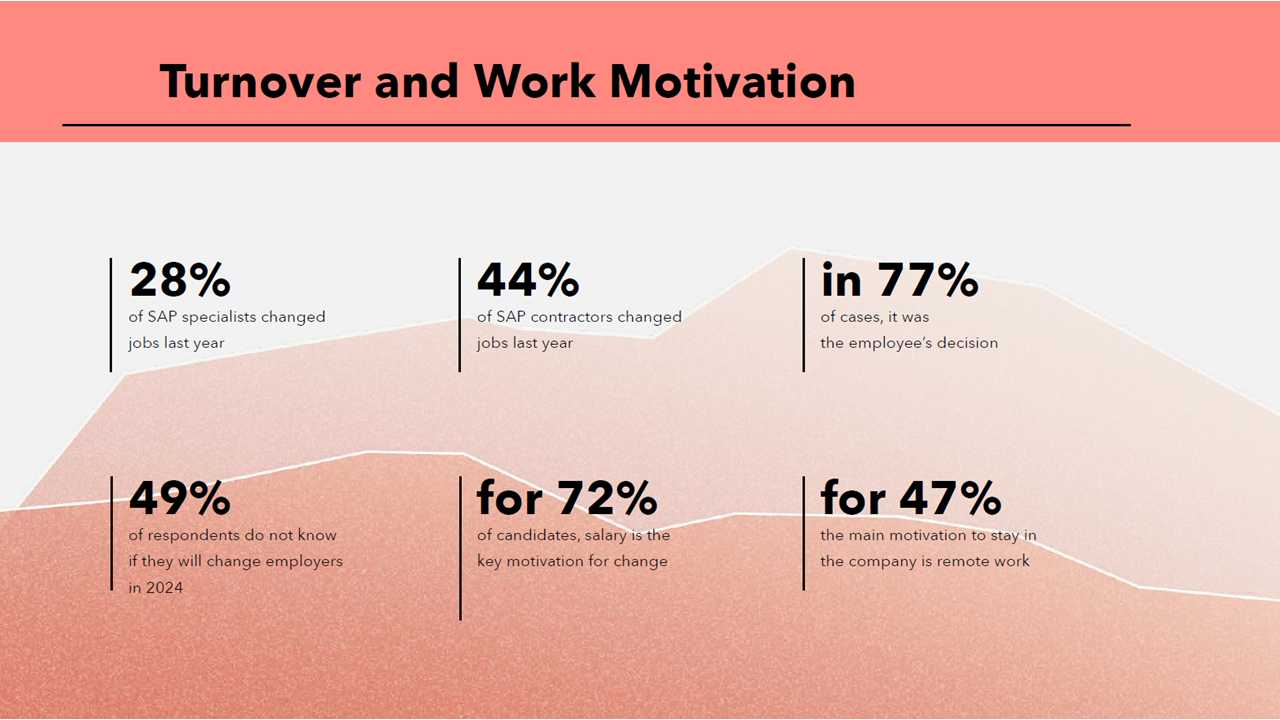
Turnover remains one of the key challenges in the labour market. According to Gallup, globally, 51% of respondents plan to change jobs in 2024, while in Europe, this percentage is 34%. This problem also affects Poland, including the IT job market. In 2023, over 28% of SAP specialists changed jobs, which is consistent with their declarations from the previous year. The relatively low turnover is a consequence of previous years. At the end of the pandemic, the propensity to change jobs in IT was record- breaking, which naturally reduced turnover in the following period.
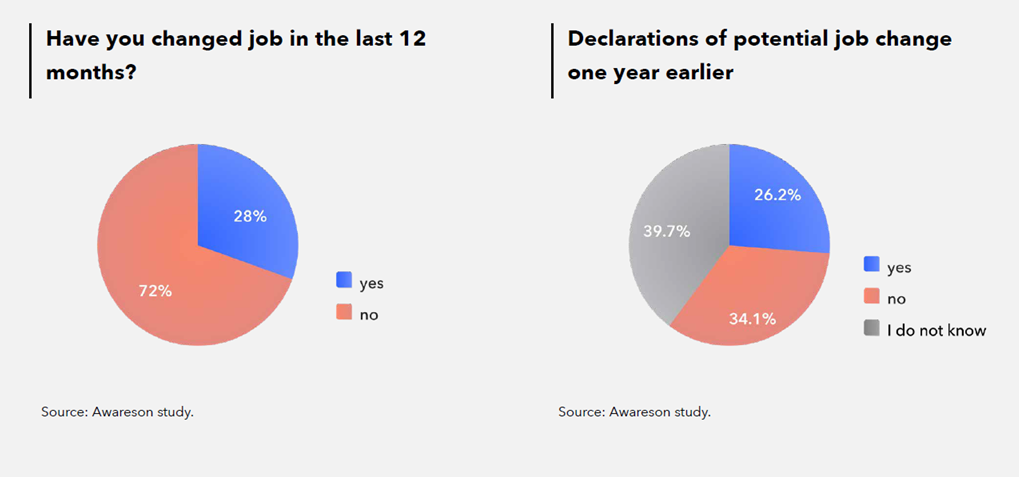
What definitely distinguishes the SAP job market from others is the minimal correlation between age and turnover. In the under-30 age group, this indicator can be twice as high when compared with employees aged 50 and older. In the case of SAP, the differences are minimal, indicating a high demand for skills in every age group.
It is often consultants, not employers, who decide to end co-operation, which clearly indicates a so-called employee market. Traditionally, permanent employment binds specialists to a company more strongly than other forms of employment, although considering that in the case of outsourcing, the end of the project is often the reason, this is not a significant difference. It is also evident that permanent employment does not protect against dismissal more than other types of contracts.
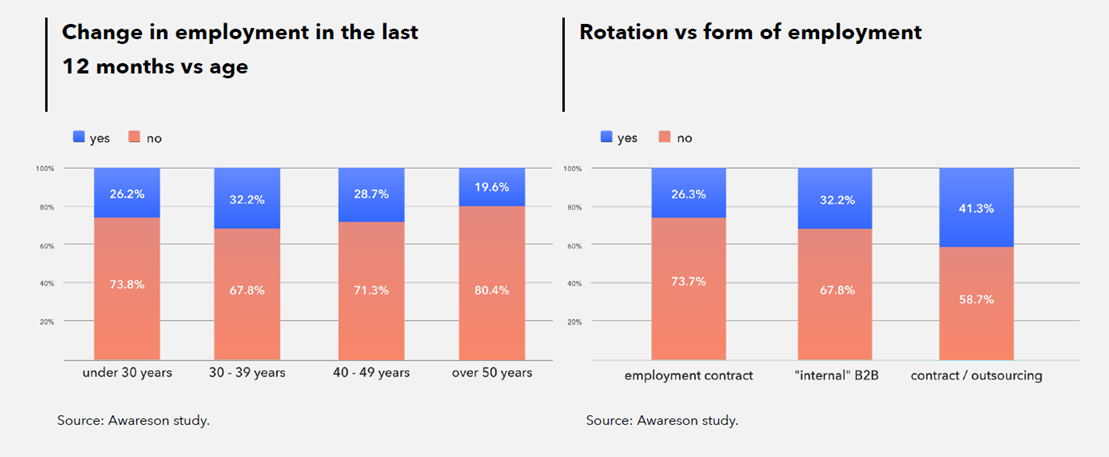
The reasons for job changes by consultants and developers have remained unchanged for several years: it is practically equal between money and development. Specialists are not afraid of losing their jobs, which is not surprising given the high demand for their skills. They also do not feel the need for advancement.
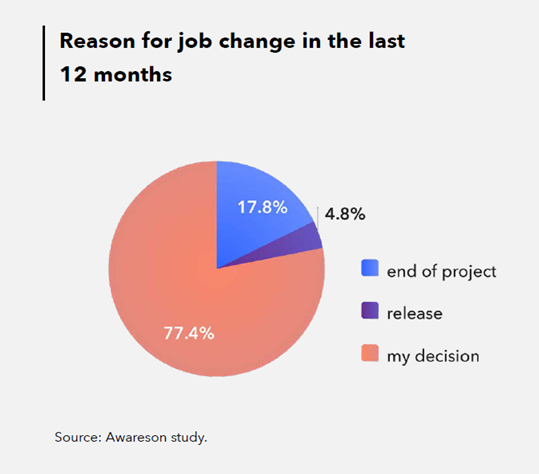
Data collected from SAP specialists shows an increasing uncertainty regarding potential job changes. Half of the respondents do not know if they will be taking on a new challenge this year. In my opinion, this is a consequence of events in recent years. We are tired of the pandemic, war, inflation, and economic slowdown. On one hand, for economic reasons, more candidates than last year are seeking employment, but on the other hand, they are not making a final decision to change. They are exploring the market and realising that where they are employed, might not be so bad after all. This is confirmed by my practical observations of the market and the growing number of rejected offers.
Candidates sometimes go through 3-stage recruitment processes, only to ultimately decline an offer that meets all their requirements. This suggests that they are driven by curiosity, and the decision is influenced by fear of the future, but they do not decide to change because the benefits of taking the risk are not sufficient.
We also see that permanent employment still binds candidates to the company more than other forms of employment. Besides the obvious fact that in the case of outsourcing, some turnover simply results from the end of the project, it is evident that collaboration based on “fully-fledged employment, on fully- fledged terms” is better cared for in terms of long-term development. Matching a candidate to a company is more precise, more restrictive, and takes into account the plans of both parties.
Marta Prudel-Hankus,
Head of Perm at Awareson
A few years ago, the desire for advancement was a significant reason for changing jobs, but today, what matters is gaining practical knowledge and deepening expertise in a specific area. The concept of being an outstanding specialist, not a leader, is the main professional goal of this group.
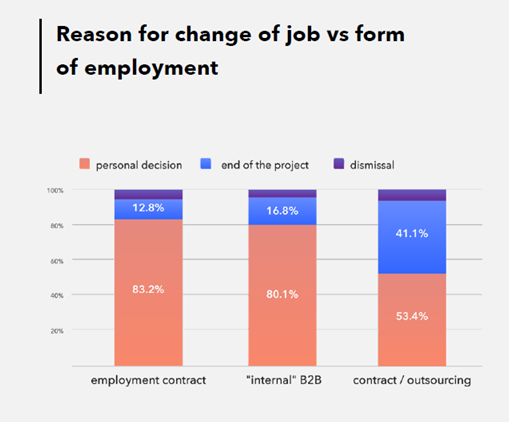
Both in the case of plans and actual decisions of employees, we have two key arguments: salary and development. However, in the case of declarations, salary is indicated much more frequently. SAP specialists have become accustomed to significant salary increases in previous years, and if these increases have been insufficient lately, due to the economic situation, they express a willingness to change. However, during their search, the market verifies their expectations, and ultimately, financial motivation does not play as significant a role.
Data also shows that in employees’ perceptions, permanent employment does not guarantee security. On the other hand, advancement is perceived as additional responsibilities that do not translate into higher earnings as much as deepening technical knowledge.
Remote work, on the other hand, is an important reason for staying with the company longer. Rates in different companies are similar to each other. It is precisely the potential for development and the opportunity for remote work that can be bargaining chips.
In the context of turnover, an important piece of information is that mature employees apparently have no problem finding new employment. Competencies are in demand. This is positive news.
Przemysław Ostrowski
Head of Data & Analytics, Ørsted
What awaits the market in 2024? The declared willingness to change jobs is increasing, which is natural after a year of relative stagnation. Indecisiveness is significantly increasing – half of the respondents do not have clear career plans for this year.
In terms of job changes in the previous 12 months, salary and development had essentially the same significance, and when expressing a desire to leave, money seemed crucial. One reason is inflation, and another, perhaps more significant reason, is that the market effectively verifies candidates’ financial expectations.
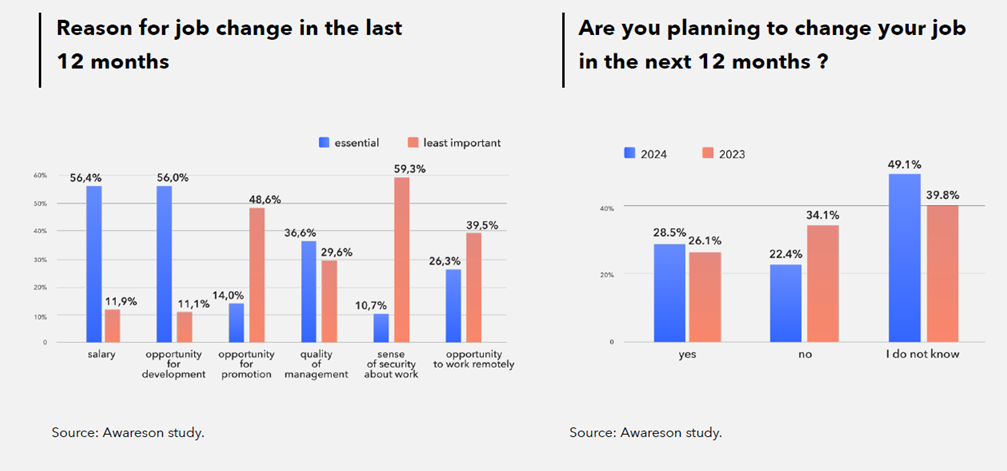
How to retain the best? Equally important as the salary and development prospects have become for candidates, the opportunity for remote work is an increasingly key factor. Since salaries and development opportunities are similar in many companies, comfort of work may well determine the decision.
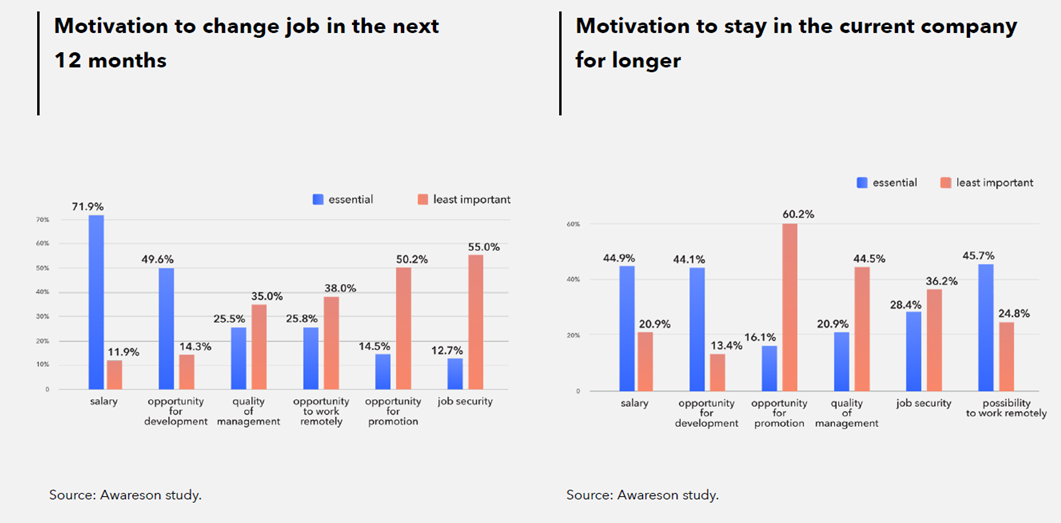
Want more information about the SAP community in Poland? Download our SAP Report 2024



